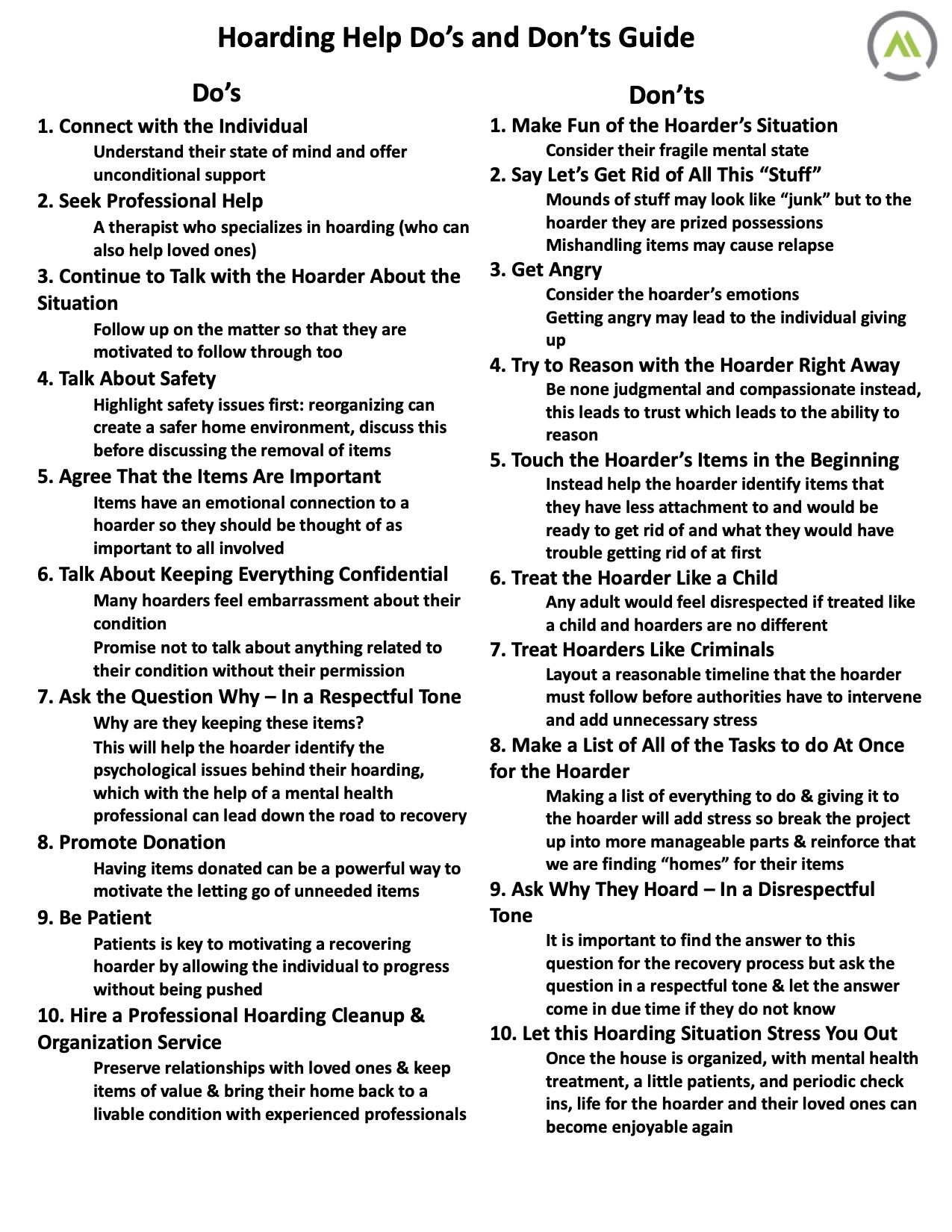
Talking to a family member or a friend about their compulsive hoarding situation, must be done carefully. Hoarders are highly defensive of the items that they have gathered, and a person that is trying to help must be careful when assessing the situation. Listed below is helpful advice on what not to do when working to help a family member or friend who is a hoarder.
7 Things Not to Do with a Hoarder:
- Touching Items Without Permission: Hoarders have an unnatural attachment to the things that they have gathered. If a person tries to move the possessions without the hoarder’s consent, the hoarder can become emotionally upset or angry. This can potentially result in the helpful individual’s expulsion from the home.
- Using Derogatory Language: The use of judgmental language can cause harm. Not only can it upset the hoarder, but cause them to withdraw further from the outside world. Avoid saying that the hoarder’s items are “junk, garbage or trash.” Those words are highly offensive to the hoarder, because of their emotional attachment towards the items.
- Argue with the Hoarder: Arguing with the hoarder can make the situation worse. Hoarders in many cases suffer from high anxiety and arguing raises anxiety levels. Moreover, these items give the hoarder a feeling of security and safety, which lowers their anxiety . Arguing with the hoarder can only raise the hoarder’s stress levels and make helping them more difficult to help.
- Facial Expressions: Facial expressions can speak louder than words. Showing signs of grief, dismay, or anger can convey judgment on the hoarder. Hoarders’ can read a person’s judgmental face, therefore the hoarder can still feel the shame.
- Asking Why?: Asking a person why do they hoard is not an advisable approach to handling a hoarder. Hoarders do not want to explain why they are gathering items. In many instances, hoarding is brought on by a traumatic event. They prefer not to relive that event or be reminded of what occurred.
- Removing Items without Their Consent: Removing a hoarder’s items without their permission, can be disastrous. The hoarder will quickly return to their cluttered lifestyle by gathering new items and shutting the helper out of their life.
- Criminalizing Their Actions: The hoarder does not have control over their actions. A person trying to help should not berate the hoarder by declaring them criminals for their behavior. This can only result in exacerbating the hoarding situation because it will lead to the hoarder further withdrawing from society.
Hoarding is a sensitive issue for all parties that are involved. If you are a person who is looking to help, please take this advice into consideration. However, if you are feeling overwhelmed by the hoarding situation, please seek out help. There are professionals out there that range from therapists to a specialized hoarding cleanup service that can help solve the hoarder’s severe clutter problems.
Guide: Do's & Don'ts of Hoarding Help
Video: Do's & Don'ts of Communicating with Hoarders
Please consider our company Address Our Mess for professional hoarding cleanup service. Call 410-589-2747, email info@addressourmess.com, or use our contact us page for more information. We are here to help!
